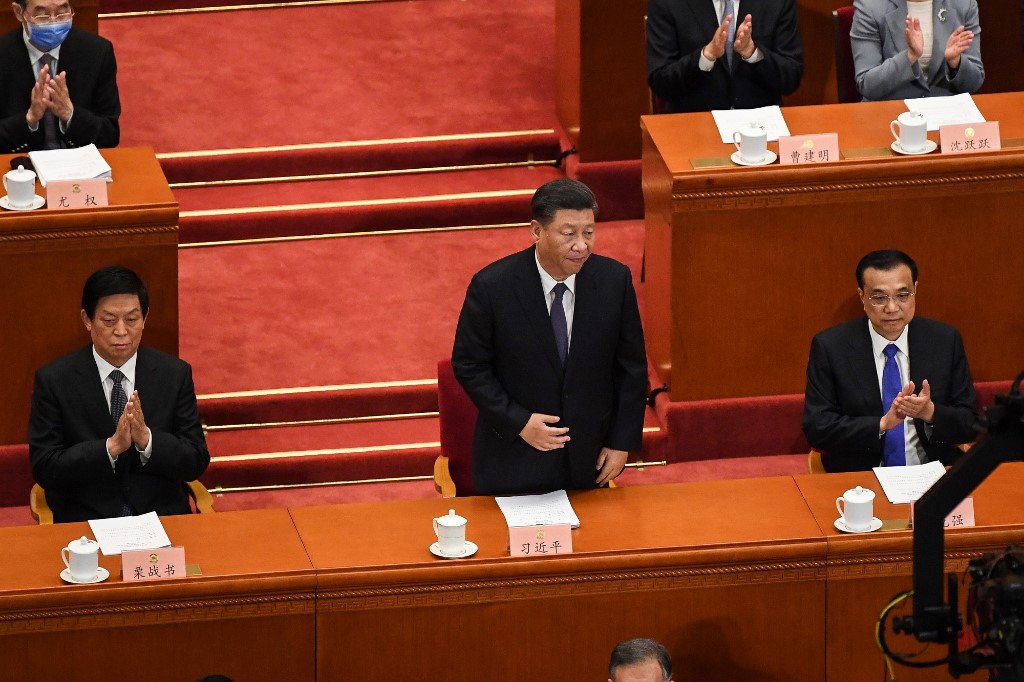(ATF) China’s leaders and top political advisors have gathered in Beijing for the year’s big political get-togethers, known as the “Two sessions”, after it was postponed for several months due to the Covid-19 epidemic.
President Xi Jinping wants to maintain progress on the national goal of building a “moderately prosperous society”, and that is likely to mean a long and consistent effort to contain the coronavirus.
Key issues at the top of the agenda at the National Committee of the Chinese People’s Political Consultative Conference (CPPCC) and the National People’s Congress (NPC) are relatively straightforward – control of the epidemic, economic growth, poverty alleviation and creating jobs.
Controlling the epidemic
Public health was expected to be a hot topic, with officials discussing their experiences and lessons learned from combating the Covid-19 coronavirus.
National lawmakers and political advisors will also talk about how to get back on track in all areas of economic and social development, while implementing regular epidemic prevention and control measures.
As of Sunday, mainland China had 82,954 cases of Covid-19, including 82 patients currently being treated. All up, some 4,634 people had died of the disease, according to statistics published by Xinhua.
Growth target
On Friday, Premier Li Keqiang is due to give a government work report to the NPC and this usually includes economic targets for the year.
Given the impact of the virus, there has been considerable speculation on this. So, the wording of the targets will be more closely watched, for clues on how the country is handling the impact of the Covid-19 epidemic.
China reported GDP growth of 6.1% in 2019, which was within its target range of 6-6.5%.
Analysts expect this year’s target will continue to be a feasible one. The country’s leaders are keen to grow faster than other major economies, but this will obviously depend on its ability to contain outbreaks of Covid-19 and other factors, such as stable trade relations with the US.
Creating jobs
The government work report normally sets goals for jobs, inflation and the fiscal deficit. Creating jobs will be a high priority given the leaders’ desire to maintain social order at a time when many millions of people have lost their jobs.
Recent official data suggests the job market was stable but “under pressure” in April. Unemployment in urban areas was put at 6%, just above the target of 5.5% last year.
Leaders have vowed to do whatever they can to stimulate the economy and prevent mass lay-offs. Large sums have been raised via bond issues recently by state enterprises and provincial governments for a raft of projects that focus on infrastructure and 5G high-speed internet.
For example, Wuhan, the city hit hardest by Covid-19, will see investment of 45.4 billion yuan (about US$6.4 billion) on transport facilities this year. Local transport officials want to splash out to beat the city’s expenditure target after the coronavirus halved spending over the past six months, Xinhua reported today.
A lot of that money was due to be spent on railways in the central China hub, which is home to 11 million residents. Wuhan also completed reconstruction of the runway and terminal at Tianhe, its international airport.
Poverty alleviation
China has been pushing to eradicate poverty for years. The country sees itself as close to realising its goal of building a moderately prosperous society. More than 93 million people in rural areas are said to have been lifted out of poverty over the past seven years.
However, Covid-19 hit the economy hard, and also knocked other major economies flat and thus greatly undermined demand for Chinese exports. So, the government has said it will focus on domestic consumption to try to meet its poverty eradication targets.
The “Two sessions” aims to pool the experience of legislators and politicians on how to eradicate poverty and maintaining living standards for those hit hard by the recent economic shocks.
Another issue to be discussed will be a draft civil code, which would be like a basic civil law with general provisions on property, contracts, individual rights, marriage and family, and inheritance.
























